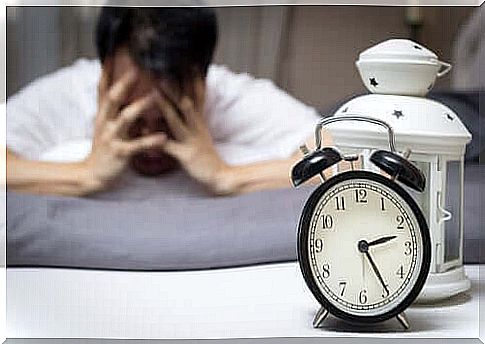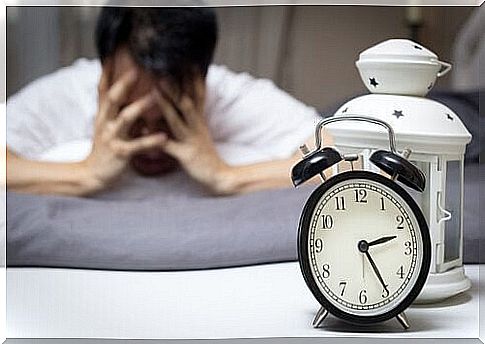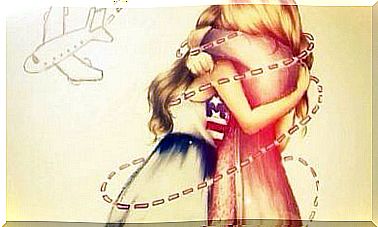Drug Treatments For Insomnia

Insomnia is one of the most common disorders, but it is important to know that there are drug treatments as well as other alternatives to fight against it. It affects a large part of the population. And this regardless of age and health conditions.
Insomnia can be defined as the difficulty in getting and / or maintaining sleep. Sometimes it is a problem related to other biological disorders, but sometimes it can also be psychological or psychiatric problems. Nevertheless, insomnia can also appear for no apparent reason. The symptoms most commonly associated with what is commonly referred to as insomnia are :
- Difficulty falling asleep
- Poor quality, non-restorative sleep
- Short-term sleep
- Frequent awakenings
- Fatigue upon awakening
- Problems during the day related to lack of sleep, such as fatigue, lack of concentration, reduced motivation, headaches, anxiety, etc.
According to experts, these symptoms must persist for more than a month or so before we can speak of insomnia . However, there are many different classifications of insomnia with varying diagnostic criteria.

First of all, it is considered that around 30% of adults have suffered from insomnia at some point in their lifetime. The frequency of this disorder increases dramatically with age, and insomnia is much more common in women than in men. There are also certain risk factors that increase the likelihood of suffering from insomnia. Among them :
- Mood disorders
- Chronic diseases
- Menopause
- Neurodegenerative diseases
- Chronic headaches
Insomnia is a pathology that can have serious consequences on the quality of life of people who suffer from it. In fact, in insomniac patients, the likelihood of depression and even cardiovascular disease increases.
Types of treatment
In order to find an adequate treatment for insomnia, it is essential to establish a correct diagnosis and to determine what causes it or what makes it worse. It is sometimes difficult to conduct this study and there is a tendency to abuse drug treatments for insomnia without always being justified.
However, today we have many tools that can help us in diagnosing and classifying the type of insomnia the patient is suffering from. This makes it easier to apply the treatment that best suits your needs.
In fact, the first step in establishing treatment for insomnia should always be identifying the underlying causes and disorders that can cause or influence this disturbance to sleep.
In the beginning, treatment should always focus on non-drug measures. This is what we call sleep hygiene. Some of the recommendations regarding sleep hygiene are for example:
- First of all, maintain a sleep routine: i.e. fixed times for going to bed and waking up each day
- Promote a calm atmosphere in the bedroom
- Avoiding the consumption of stimulant drinks, such as caffeine or alcohol
- Don’t eat dinner too late so that you don’t have a full stomach when you go to bed
- Avoiding screens, such as mobile phones or television, before going to bed
- Trying relaxation techniques
- Eliminate naps
Drug treatments for insomnia
In many cases, these sleep hygiene measures are not always sufficient to cure insomnia and it is therefore necessary to resort to medication. First of all, beware of the risks associated with self-medication. Indeed, it is essential that a doctor prescribe this type of treatment if necessary.
There are many different drugs used in the pharmacological treatment of insomnia. Among them we find the following therapeutic groups:
- The hypnotic:
- Benzodiazepines, effective:
- Rapid: alprazolam, lorazepam
- Moderate: lormetazepam, clonazepam
- Extended: bromazepam, chlorazepate
- Non-benzodiazepine hypnotics, such as zolpidem
- Benzodiazepines, effective:
- The antidepressants:
- Tricyclic antidepressants
- Trazodone
- Mirtazapine
- The anticonvulsants such as gabapentin
- The H1 antihistamines like doxylamine and diphenhydramine
- The melatonin and its derivatives
- The valerian and other natural products

Problems associated with drug treatment for insomnia
The pharmacological treatment of insomnia, while effective, is not without controversy. This is mainly due to the side effects of these types of treatment. For example, benzodiazepines are often associated with side effects such as daytime sedation or rebound insomnia upon discontinuation of treatment. Some experts also associate their use with memory problems.
These problems are aggravated, especially when there are other underlying pathologies in patients with insomnia. And, even more, when trying to treat insomnia without knowing or modifying the causative agents.
Therefore, in general, it is best to start with non-drug therapies. For example, more natural products like melatonin or less problematic drugs like H1 antihistamines should be considered. If it is necessary to use benzodiazepine-type hypnotics then short-acting hypnotics like alprazolam or lorazepam are preferable.
Finally, if you have a problem with insomnia, do not hesitate to consult your doctor. They can help you and prescribe the treatment that is best for you and your needs.










